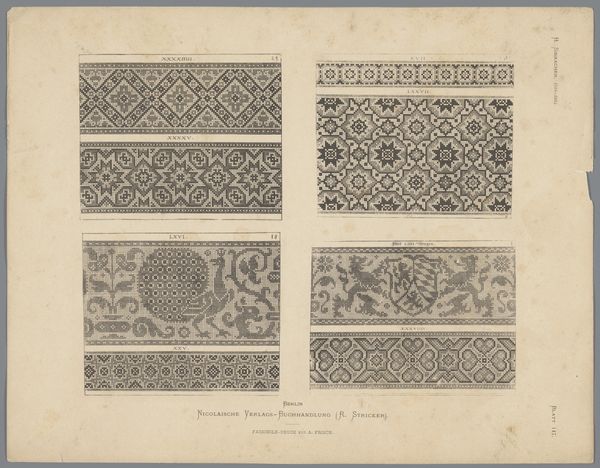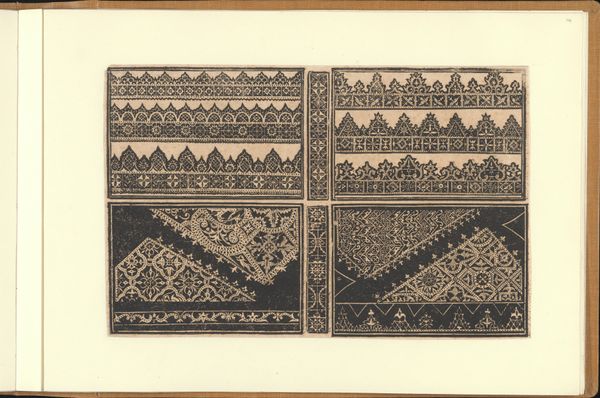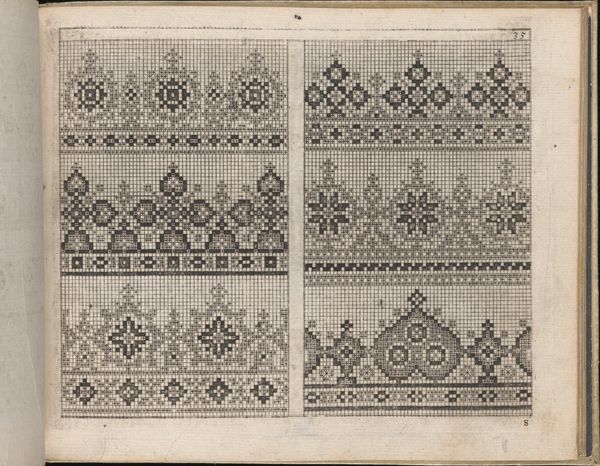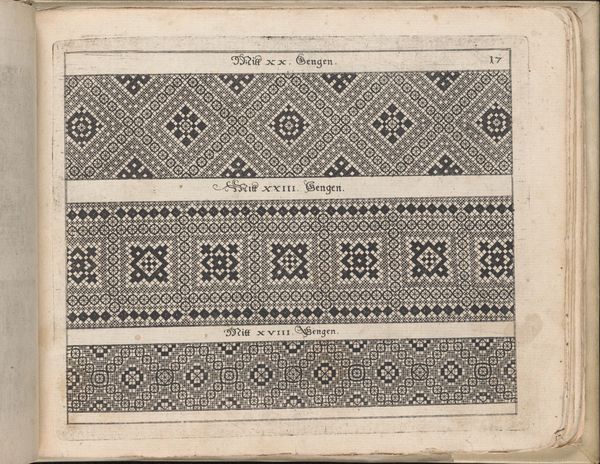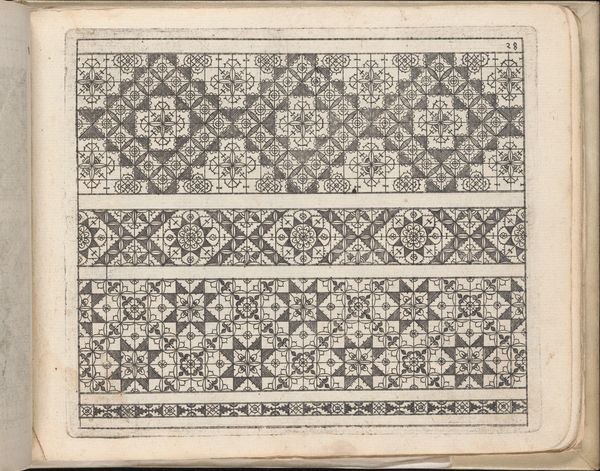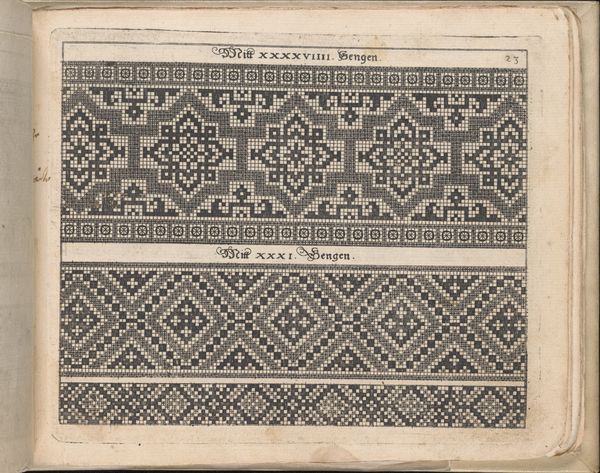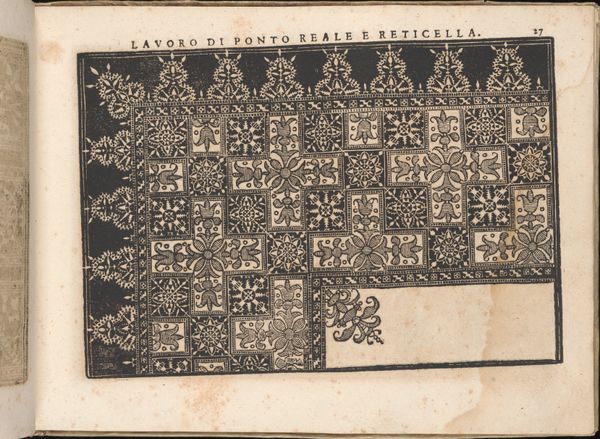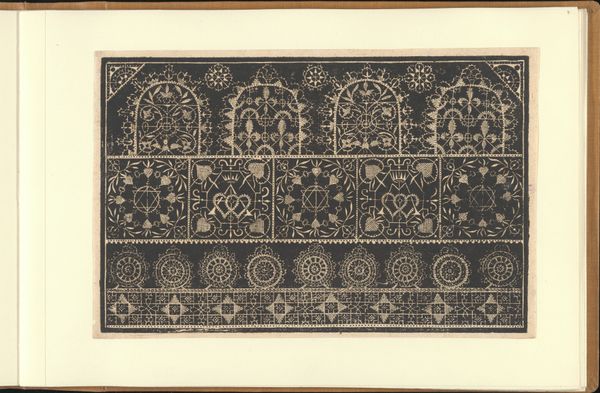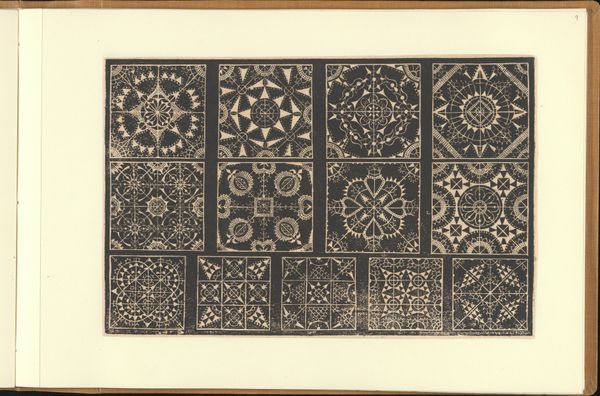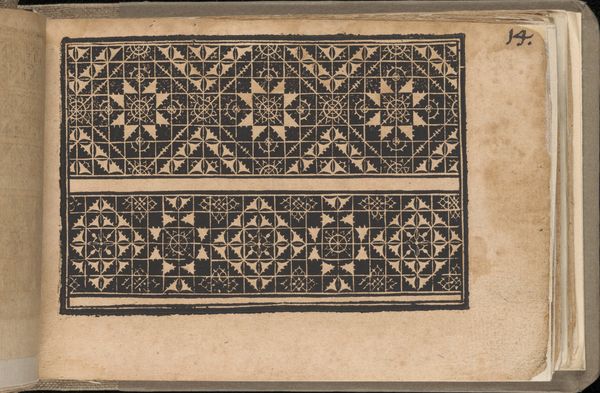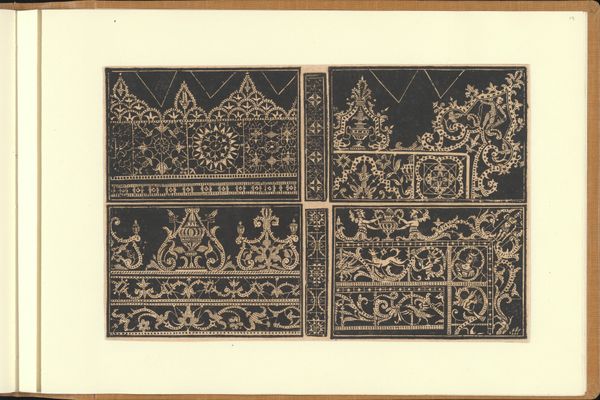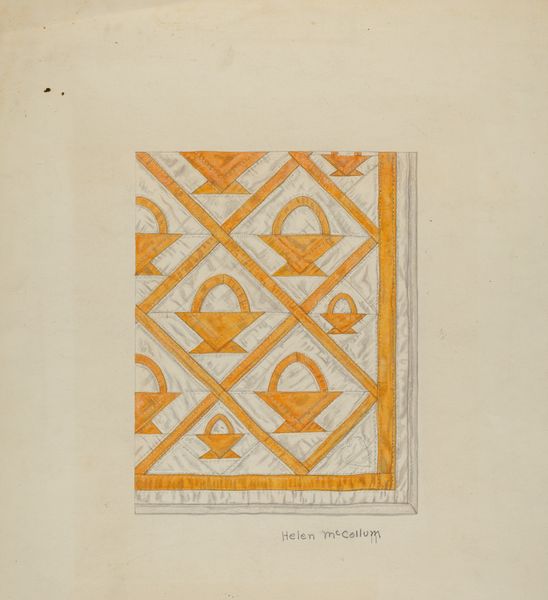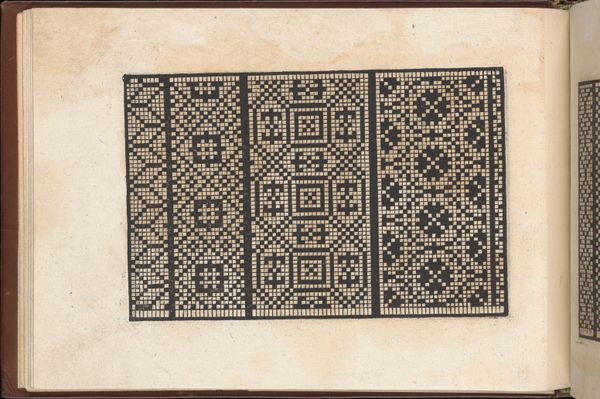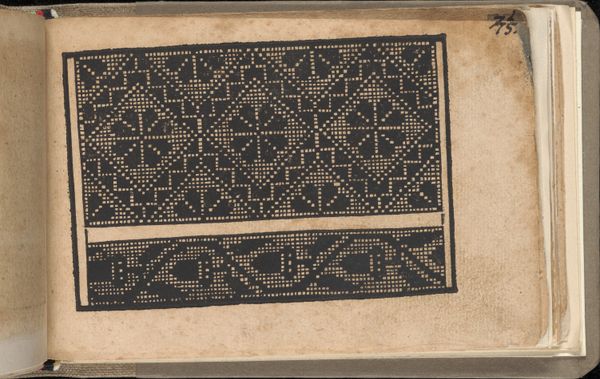
graphic-art, print, engraving
#
graphic-art
# print
#
geometric
#
engraving
Dimensions: height 289 mm, width 370 mm
Copyright: Rijks Museum: Open Domain
These four lace patterns were created by an anonymous artist. The patterns embody more than just aesthetic designs; they reflect the complex social fabric of their time. The intricate geometric and floral motifs weren't just decorative, they were visual codes, cultural references, and historical associations all rolled into one. Likely originating from 16th or 17th century Europe, these patterns would have been deeply influenced by the prevailing trends in fashion, interior decor, and even religious symbolism. Lace-making, during this era, was a significant craft, often associated with women's work, and these patterns would have played a crucial role in shaping the visual culture of the time. To fully appreciate these patterns, one would delve into sources like fashion plates, household inventories, and guild records. This research would allow us to understand the social structures, economic conditions, and institutional histories that influenced not only the creation of these patterns but also their consumption.
Comments
No comments
Be the first to comment and join the conversation on the ultimate creative platform.
